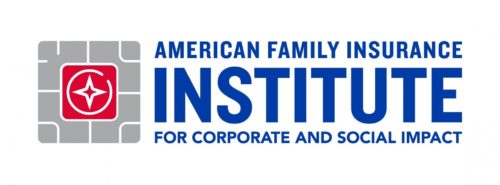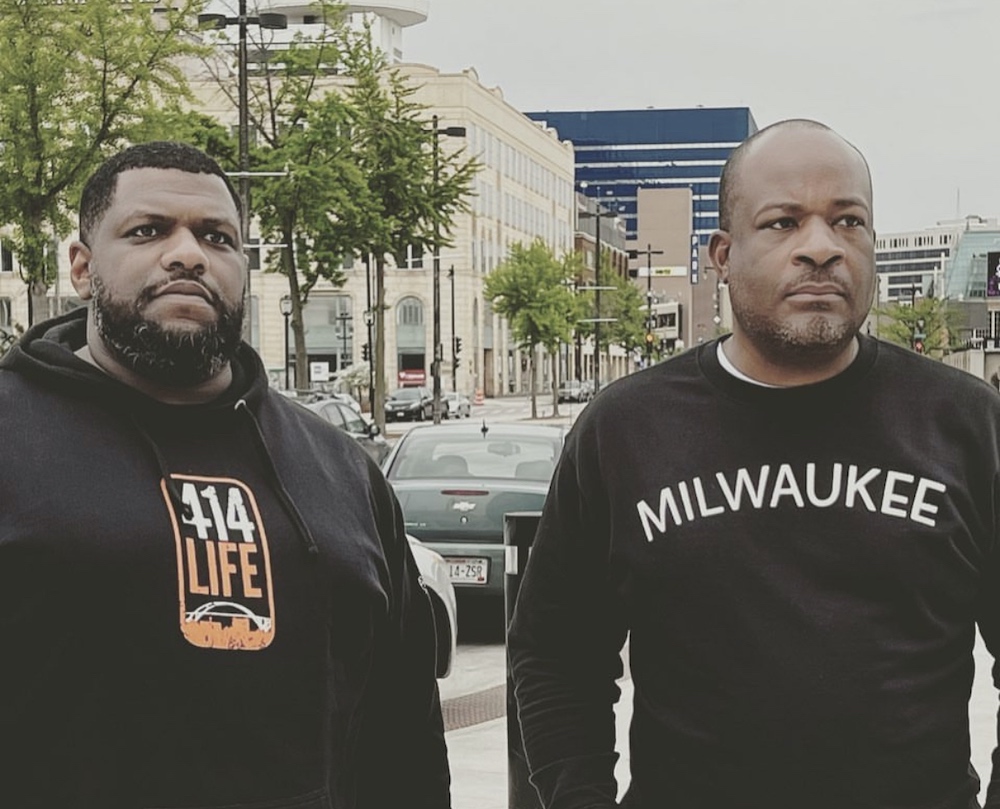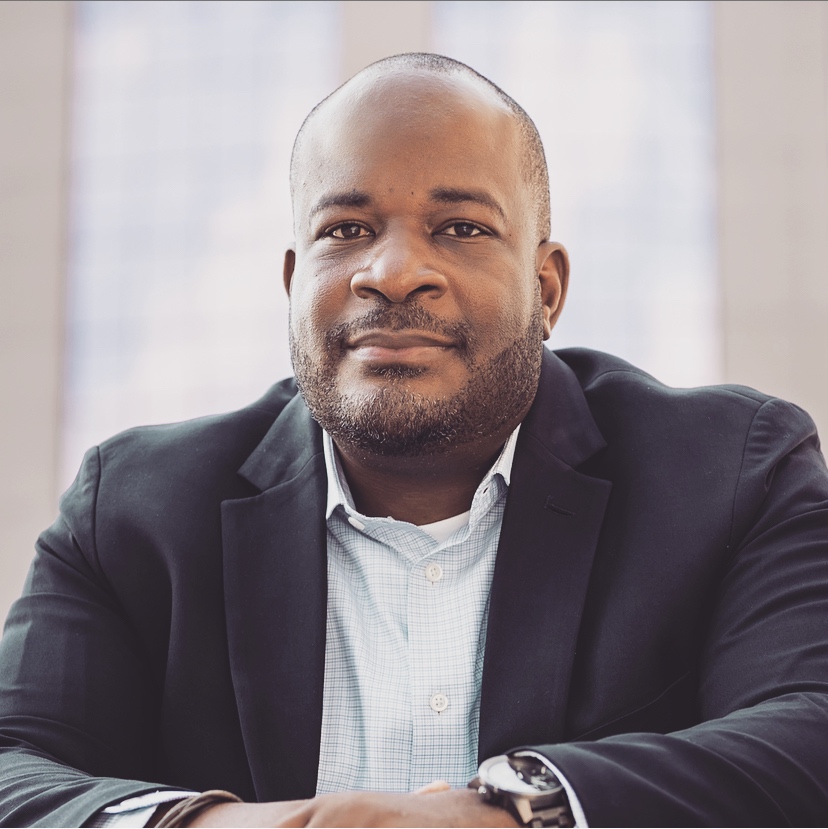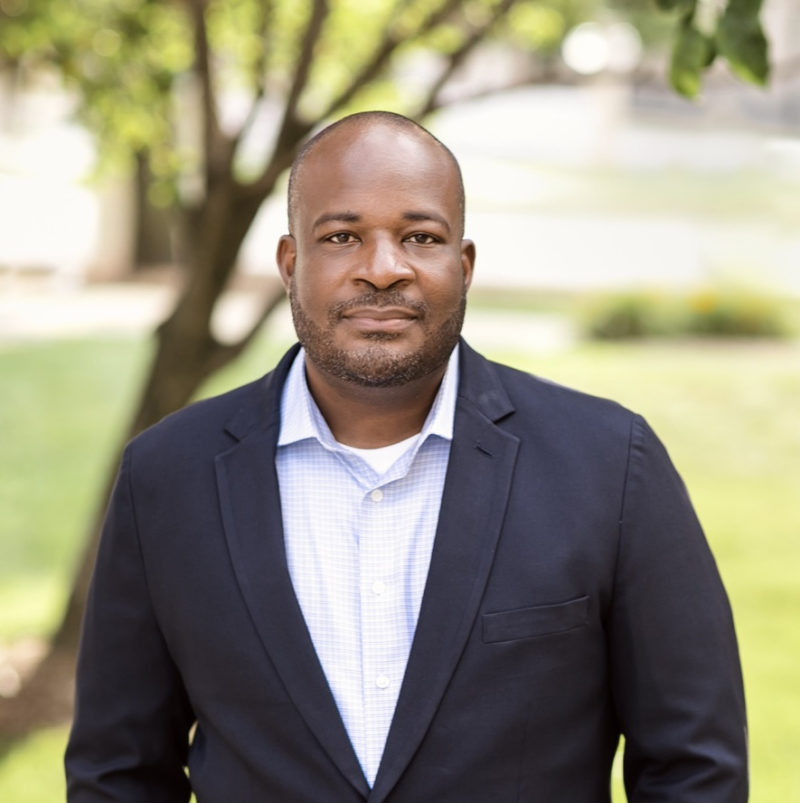
This article appears as part of This Week in Milwaukee Rising, a weekly newsletter from Technical.ly highlighting the innovators bringing a more just, equitable and dynamic Milwaukee economy. Subscribe here. The series is underwritten by American Family Insurance Institute for Corporate and Social Impact.
As he grew older, Moore’s exposure to gun violence would become the norm — a common thread knotting the experiences of neighborhood friends and family members, some who escaped incidences without physical injuries, others who would go on to lose their lives, everybody impacted by the rippling pain gun violence leaves behind.
“As a son of the city, and as an African American, I’ve been affected by violence my whole life,” said Moore, who grew up near Milwaukee’s Hillside projects. “Having lost family and friends, this is an issue that is very personal for me.”
Moore channeled those early experiences into his life’s work. For nearly 25 years, he has served as an advocate for violence prevention, creating youth programming in Milwaukee to keep kids off the streets to influencing state policies and legislation at the Capitol, all aimed at expanding opportunities and upending the root of violence. That’s included heading up and expanding the city’s Office of Violence Prevention, where Moore led the process to develop Milwaukee’s first community-driven violence prevention plan, known as the Blueprint for Peace.

Reggie Moore (right). (Courtesy photo)
A national and local gun violence problem
Since then, finding a solution to gun violence has taken on more urgency as the public grapples with a cascade of gun violence and mass shootings coast to coast. It’s a “uniquely American problem,” Moore said.
At the national level, gun deaths have long been charting a troubling ascent. According to Pew Research, more Americans died of gun-related injuries in 2020 than in any other year on record, with nearly half — at least 19,284 fatalities — attributed to gun murders.
Many of these incidents occurred during mass shootings. While there is no universal definition of mass violence, most researchers and criminal justice experts define mass shootings as those incidents involving a minimum of three victims. The Gun Violence Archive, a nonprofit research group that tracks gun violence, reported more than 531 mass shootings through mid-October, a slight decline from 2021 which counted more than 692.
In Milwaukee, local data shows a steep rise of victim counts between 2020 and 2021. In 2021, at least 1,052 people were involved in gun violence incidents, including more than 180 homicides in the city alone, with slight declines in the current year, according to the Milwaukee Homicide Review Commission.
‘Violence is bad for business’ and public health
Today, Moore is taking his lessons to work on a bigger scale. As director of violence prevention policy and engagement for the Medical College of Wisconsin’s (MCW) Comprehensive Injury Center (CIC), he is focused on advancing violence prevention and public safety through coordinated investment and collaboration throughout Wisconsin, as well as beyond its borders.

Reggie Moore. (Courtesy photo)
Stemming the threat of violence requires moving beyond a criminal justice approach and treating violence prevention as a matter of public health, Moore said. Besides the collective trauma it could help avoid, public safety is crucial to attracting businesses and community investment — without those two factors, the cycle of poverty and violence are almost guaranteed to continue.
“Violence is bad for business,” he explained. “We so often buy into the paradigm that these are bad people, doing bad things, in bad places. Gun violence is a symptom of a series of underwater factors. Sometimes the perpetrators and victims are the same people. We cannot police our way out of this situation.”
Moore said the rash of gun violence throughout the state is a complex combination of factors that have been exacerbated during the isolation of the pandemic. Issues such as declining mental health, economic stress, and the consequences of divisive politics resulting in a growing culture of fear, have all played a part in the conflict.
Investing in prevention
One initiative underway to restore peace in Milwaukee is MCW’s Violence Response Public Health and Safety Team, or VR PHAST. The program includes the collaboration of more than 70 local agencies — including the Milwaukee Health Department, Milwaukee Public Schools, the court system and law enforcement — who meet weekly to review shootings, coordinate mental health and housing services for gun violence survivors, and discuss referrals for mediation or operational barriers, Moore said.

Reggie Moore. (Courtesy photo)
The program has been made possible in part by American Rescue Plan Act funding, of which MCW received more than $6.6 million in funding to advance research, data collection, education and community engagement efforts toward violence prevention throughout the state. An additional $10 million was provided to MCW to administer to organizations working on violence prevention efforts. So far, MCW has received nearly 50 applications from community orgs seeking such funding, underscoring the need, Moore said.
There are more signs the powers that be are paying attention: This past spring, Moore joined President Joe Biden and several national community leaders and law enforcement officials for a roundtable event to discuss violence prevention funding and initiatives, where he provided opening remarks. Moore expressed his concern that assistance would be temporary, and encouraged the group to stay the course.
“We are deeply appreciative of the investment in public safety funding, but we cannot allow public health for violence intervention to be scapegoated for not having an immediate impact,” Moore said. “It’s going to take time. The timing and the urgency is front and center.”
Staying the course
The Biden event was held May 3. A few days after the event, 10 people were gunned down in a supermarket in Buffalo, New York. Less than two weeks later, 21 people, including 19 children, would lose their lives in a mass shooting in Uvalde, Texas.
In this field of work, it could be easy to get discouraged. But Moore said his faith and past successes keep him inspired. He is determined to stay on the path to progress.
“We have to shift the paradigm and reality and fear that has driven the normalization of violence,” Moore said. “This did not start in low-income communities and central cities. There are cultural and social changes that have to happen. Pragmatic solutions have to happen. I believe in a future where people don’t feel like they need a gun to feel safe. If you need a gun to be safe, you are not free.”
Subscribe to This Week in Milwaukee Rising:
Join the conversation!
Find news, events, jobs and people who share your interests on Technical.ly's open community Slack

Delaware daily roundup: Ladybug Fest illuminates small biz; Hahnemann Hospital's biotech future; intl. politics and a Middletown project

Philly daily roundup: Closed hospital into tech hub; Pew State of the City; PHL Open for Business

Delaware daily roundup: DE in DC for 'Communities in Action'; diversifying the coffee supply chain; Invista's future


